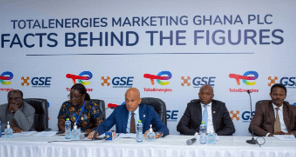The Ashanti Regional Chairman for the Association of Ghana Industries (AGI), Kwasi Nyamekye, has said that cost of power, high interest rates and difficult access to finance can be major hindrances for local manufacturers to compete favourably in the Africa Continental Free Trade Area (AfCFTA).
According to him, these elements of cost in production when accessed affordably assist in the manufacturing sector’s growth.
“Doing business in Ashanti Region, and for that matter Ghana, is very difficult; the energy tariff is just too much. Comparing our bills in Ghana to our neighbours in the sub-region, power generation in Ghana alone is about 16 cents per kilowatts hour (Kwh) compared to Cote d’Ivoire which is 9 cents per Kwh. We are not competitive when it comes to energy.
“Look at the interest rates, compare ours with even Burkina Faso, Nigeria or Côte d’Ivoire; Ghana is way off. So, doing business in Ghana and comparing yourself to the sub-region is a bit difficult. We are all in the ECOWAS sub-region and we are talking about AfCFTA; I doubt that we can compete favourably when it comes to the general AfCFTA,” he said at a Ghana Investment Promotion Centre (GIPC) sensitisation tour in Kumasi.
Mr. Nyamekye, who is also Chief Executive Officer of Vestor Oil Mill Limited, further bemoaned the situation wherein manufacturers are made to pay taxes whereas some importers of raw materials are exempted from paying certain taxes.
“We compete very unfavourably in the country. We live in a country where policy decisions favour importation to the detriment of our local production. I process soya beans locally and sell the soya meal to industry. Somebody imports soya meal into the country and pays zero taxes and duties. Meanwhile, I am competing with that person on the market.
“These importers have been given some leverage because it is raw material for the poultry sector. When there’s not enough soya beans in the country and I want to import the beans, it is not seen as a raw material. I pay duty and taxes at the ports. Is it fair? It is absurd to hear this,” Mr. Nyamekye lamented.
He further called on government to be intentional about putting in measures to cushion local manufacturers and industries.
“It’s a deliberate policy that government has to enact to ensure we produce and sell things here in Ghana. Most countries we import from deliberately did things to cushion their local manufacturing sector. We must make sure we support our own,” he emphasised.










